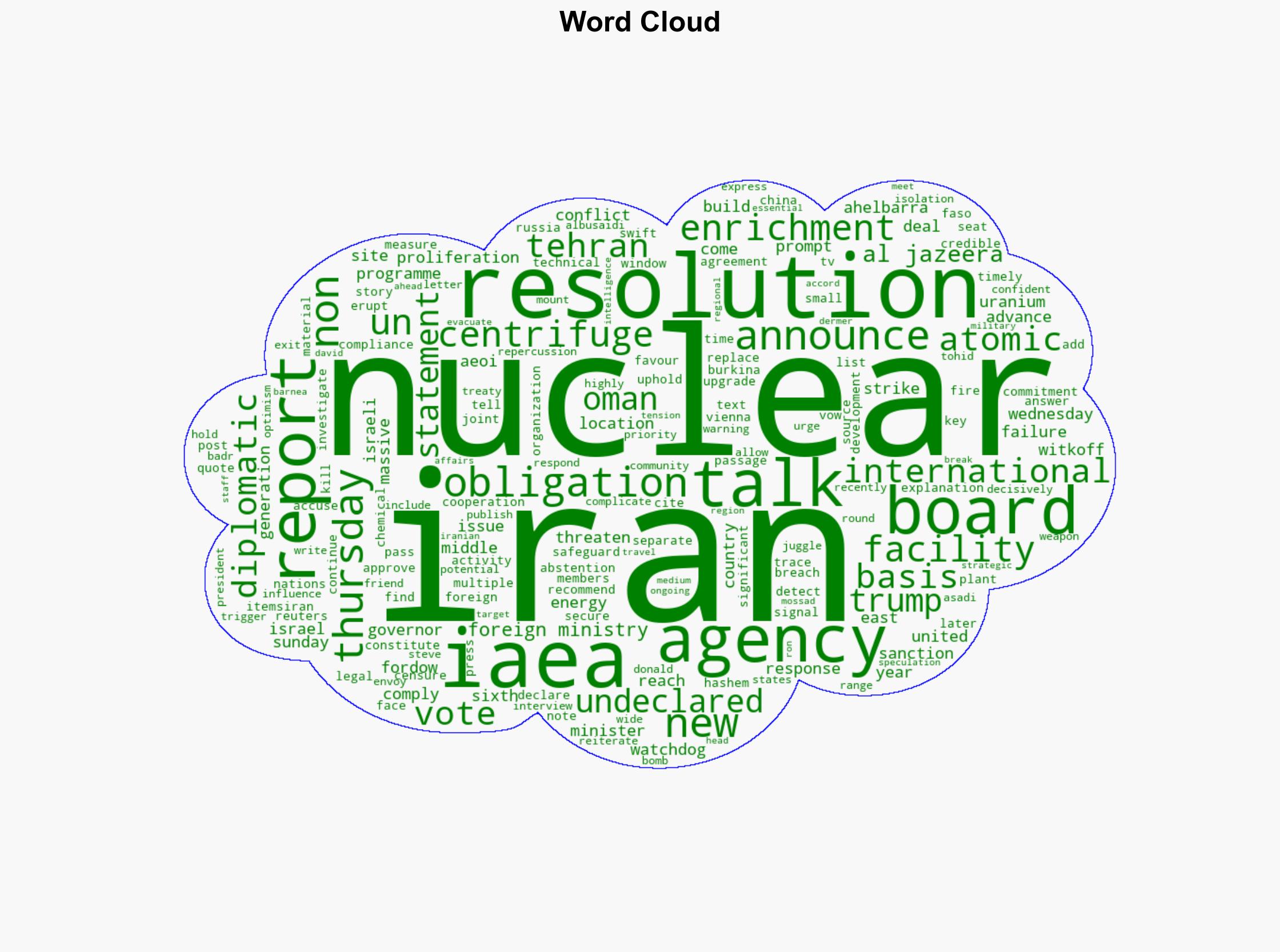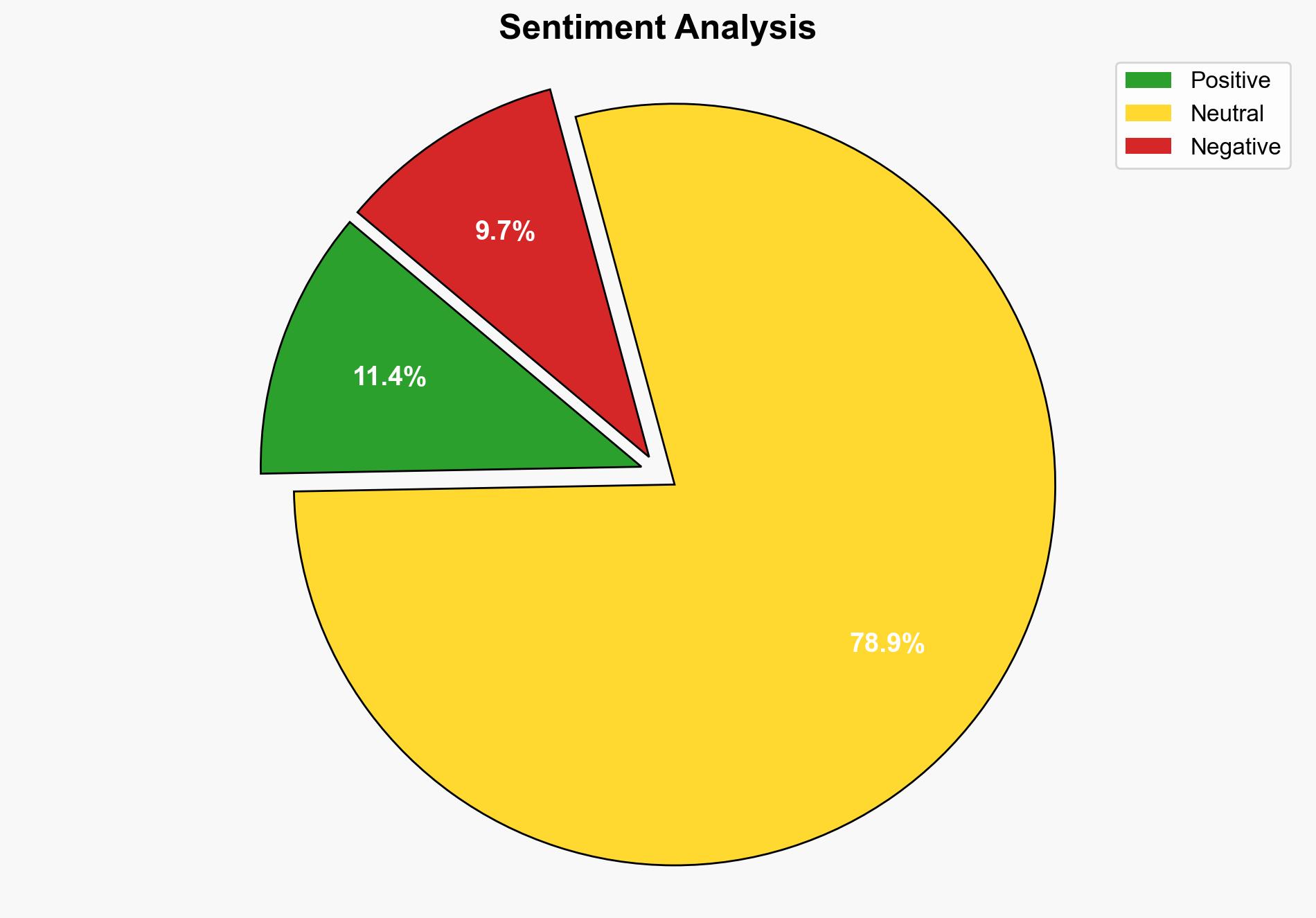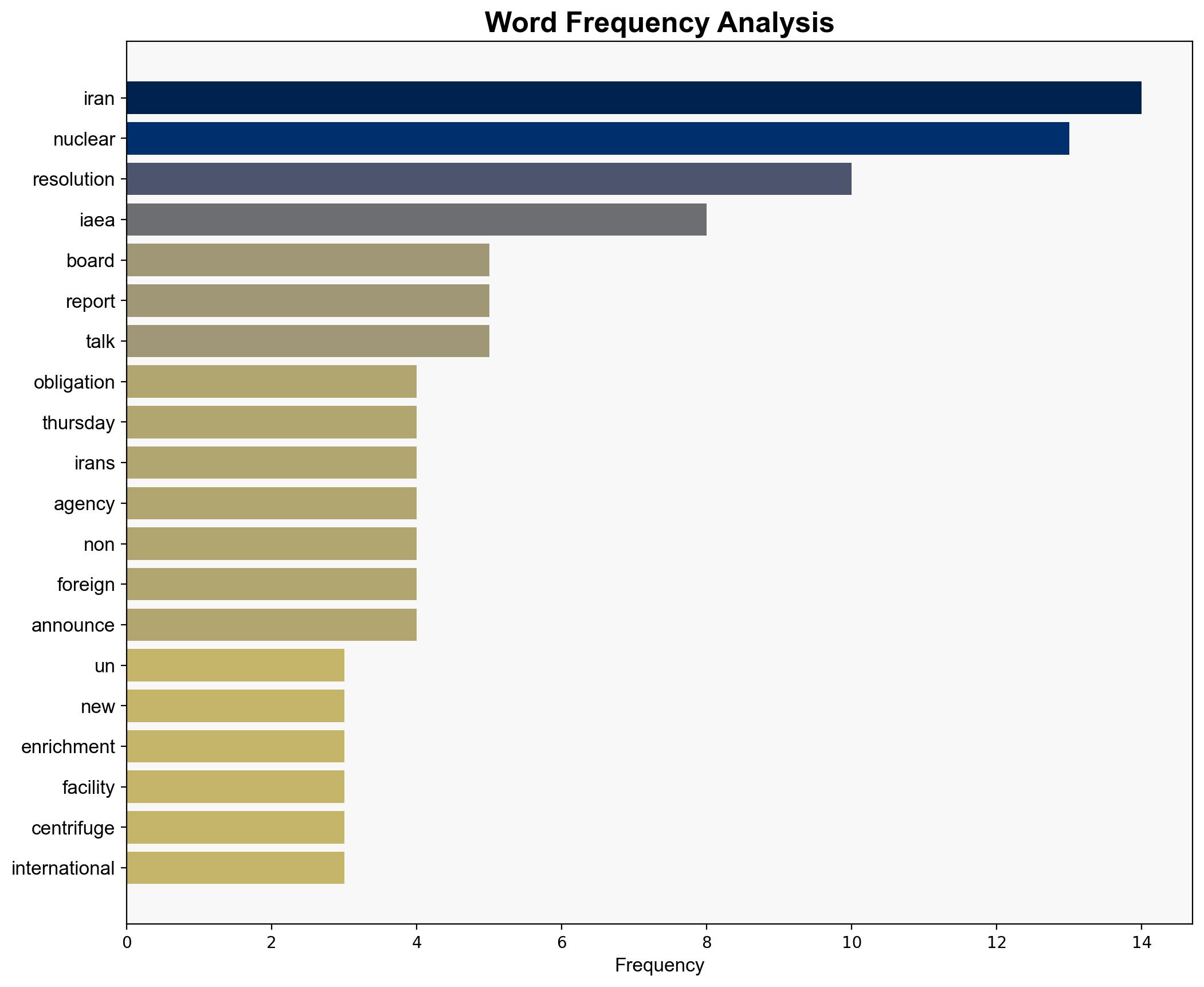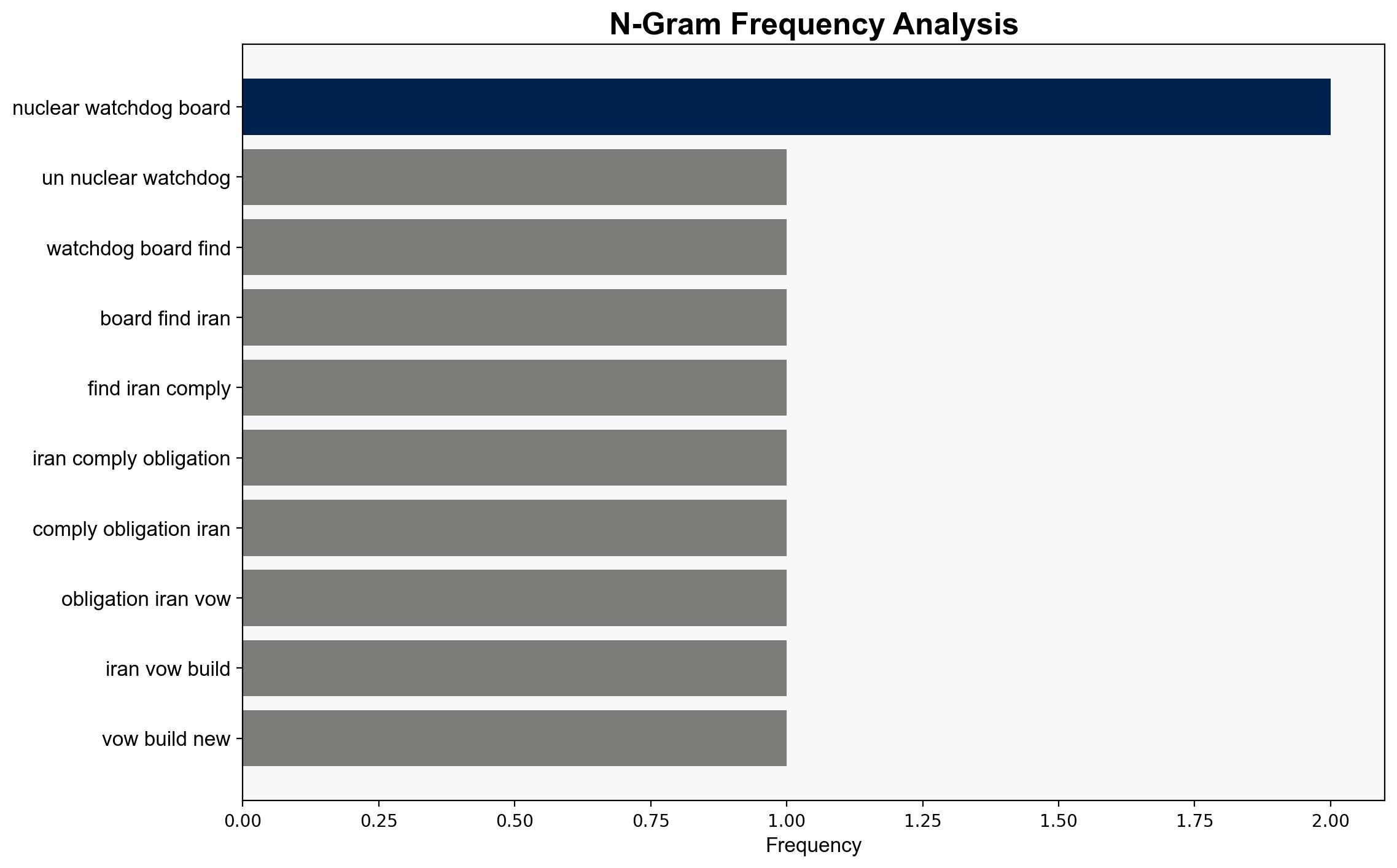UN nuclear watchdog board finds Iran not complying with nuclear obligations – Al Jazeera English
Published on: 2025-06-12
Intelligence Report: UN Nuclear Watchdog Board Finds Iran Not Complying with Nuclear Obligations – Al Jazeera English
1. BLUF (Bottom Line Up Front)
The International Atomic Energy Agency (IAEA) Board of Governors has passed a resolution declaring Iran non-compliant with its nuclear obligations. This development could lead to increased diplomatic tensions and potential sanctions. Iran’s response includes plans to build a new uranium enrichment facility and upgrade its nuclear centrifuges, signaling continued nuclear advancement. Immediate strategic recommendations include diplomatic engagement to prevent escalation and monitoring of regional military activities.
2. Detailed Analysis
The following structured analytic techniques have been applied to ensure methodological consistency:
Causal Layered Analysis (CLA)
Surface events reveal Iran’s non-compliance and subsequent IAEA resolution. Systemic structures include international nuclear agreements and regional power dynamics. Worldviews reflect Iran’s stance on nuclear sovereignty versus international oversight. Myths involve narratives of national security and regional dominance.
Cross-Impact Simulation
The resolution may strain Iran’s relations with neighboring states and influence ongoing nuclear negotiations. Economic dependencies, particularly oil exports, could be impacted by potential sanctions.
Scenario Generation
Best-case scenario: Diplomatic negotiations lead to compliance and easing of tensions. Worst-case scenario: Escalation to military conflict and severe economic sanctions. Most likely scenario: Prolonged diplomatic standoff with intermittent negotiations.
Narrative Pattern Analysis
Ideological narratives from Iran emphasize resistance to foreign intervention and the right to nuclear development. International narratives focus on non-proliferation and regional stability.
3. Implications and Strategic Risks
The resolution may exacerbate regional instability, with potential military confrontations involving Iran and neighboring countries. Economic sanctions could further isolate Iran, impacting global oil markets. Cyber threats may increase as Iran seeks to counteract perceived external pressures.
4. Recommendations and Outlook
- Engage in multilateral diplomatic efforts to de-escalate tensions and encourage compliance with nuclear obligations.
- Enhance monitoring of Iran’s nuclear activities and regional military movements.
- Prepare for potential economic impacts on global markets due to sanctions or conflict.
- Scenario-based projections: Best case involves successful diplomatic resolution; worst case involves military conflict; most likely involves ongoing diplomatic negotiations with intermittent tensions.
5. Key Individuals and Entities
Hashem Ahelbarra, Tohid Asadi, Badr Albusaidi, Steve Witkoff, Ron Dermer, David Barnea.
6. Thematic Tags
national security threats, nuclear proliferation, regional stability, diplomatic negotiations




